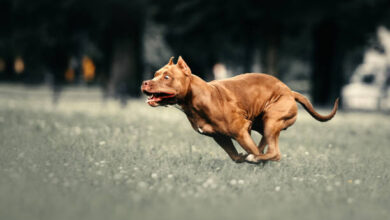Can Dogs Eat Pepper Jack Cheese? What You Need to Know-2024

Can Dogs Eat Pepper Jack Cheese? If you’re considering sharing your Pepper Jack cheese with your furry friend, it’s important to know what this cheese really is. Pepper Jack cheese is a spicy variety made from milk and chili peppers. While it adds a kick to your meals, those spicy ingredients may not be the best choice for dogs.
The high-fat content and the spice can lead to digestive troubles for our canine companions. Dogs have sensitive stomachs, and spicy peppers can cause discomfort or even more serious issues. Let’s take a closer look at the potential risks of feeding Pepper Jack cheese to dogs and explore some safer options! So,let’s briefly explain that- can dogs eat Pepper Jack Cheese?
Understanding the Potential Risks
As a dog owner, it’s natural to want to share tasty treats with your furry friend. However, when it comes to Can dogs eat Pepper Jack cheese?, it’s essential to understand the potential risks involved. While this spicy cheese might be tempting for you, it can pose several challenges for your dog’s digestive system. Here are some critical points to consider.
Digestive Upset
Feeding Pepper Jack cheese to dogs can lead to various digestive issues.
- Gas and Bloating: The combination of spices and dairy may result in gas buildup, causing discomfort for your pet.
- Diarrhea or Vomiting: In some cases, dogs may experience diarrhea or vomiting after consuming cheese that their stomach cannot handle.
Spice Intolerance
Dogs are not designed to handle spicy foods, making Pepper Jack cheese a risky option.
- Irritation of the Stomach: The peppers in Pepper Jack can irritate your dog’s stomach, leading to discomfort.
- Behavioral Changes: If your dog shows signs of distress after eating, it may indicate that the spices are causing issues.
Lactose Issues
Many dogs have difficulty digesting lactose, which is present in cheese.
- Lactose Intolerance: Dogs that are lactose intolerant can experience worsening symptoms like gas, diarrhea, or stomach pain after eating cheese.
- Individual Sensitivities: Each dog is different; some might handle small amounts of cheese well, while others may struggle significantly.
While Can dogs eat Pepper Jack cheese? might seem like a fun question, the potential risks associated with this spicy cheese can outweigh the benefits. Always prioritize your dog’s health and monitor them closely when introducing new foods into their diet. If you notice any adverse reactions, it’s best to consult your veterinarian for advice.
Recognizing Signs of an Adverse Reaction in Dogs
As a caring dog owner, you want to ensure that your furry friend enjoys their food without any negative side effects. When it comes to Can dogs eat Pepper Jack cheese?, being aware of potential adverse reactions is crucial. This spicy cheese can lead to discomfort in some dogs, so recognizing the signs early can help you keep your pet healthy and happy.
Stomach Discomfort
One of the first signs that your dog might be having an adverse reaction is stomach discomfort.
- Whining or Pacing: If your dog seems restless or is whining, it could indicate that something isn’t sitting well.
- Vomiting: An upset stomach may lead to vomiting shortly after eating the cheese.
Skin Irritation
Allergic reactions can manifest in various ways, and skin irritation is one of them.
- Itching or Redness: If you notice your dog scratching excessively or developing red patches on their skin, it may be a sign of an allergy to the cheese.
- Hair Loss: Prolonged irritation can lead to hair loss in affected areas, indicating a more severe reaction.
Lethargy or Agitation
Changes in behavior can also signal that your dog is having a negative reaction.
- Decreased Activity: If your dog becomes unusually lethargic or uninterested in play, it may be experiencing discomfort.
- Irritability: Conversely, some dogs might become agitated or irritable if they’re not feeling well after eating cheese.
While Can dogs eat Pepper Jack cheese? might be tempting, it’s essential to be aware of how your dog responds to it. Recognizing signs of an adverse reaction—like stomach discomfort, skin irritation, or behavioral changes—can help you take prompt action. If you notice any of these symptoms after feeding your dog Pepper Jack cheese, consult your veterinarian to ensure your pet stays safe and healthy.
Safer Cheese Options for Dogs
If you’re considering sharing cheese with your furry friend, you might wonder if Can dogs eat Pepper Jack cheese? While this spicy cheese may be tempting for us, it may not be the best choice for dogs. Luckily, there are several safer cheese options that can provide your dog with a tasty treat without the risks associated with spicy varieties.
Low-Fat Cheeses
Low-fat cheeses can be a healthier alternative for your dog.
- Cottage Cheese: This soft cheese is low in fat and often easier for dogs to digest. Just make sure to offer it in small amounts to avoid any digestive upset.
- Mozzarella: Fresh mozzarella can also be a great option. It’s creamy, mild, and lower in fat compared to many other cheeses.
Plain Cheese Varieties
Plain cheese varieties offer a delicious treat without the added spices that could upset your dog’s stomach.
- Cheddar: Mild cheddar is a popular choice and can be given in moderation. It has a rich flavor that most dogs enjoy.
- Swiss: Another mild cheese, Swiss is safe for dogs when fed in small portions.
Lactose-Free Cheese
For dogs with lactose intolerance, lactose-free cheese can be a game changer.
- Lactose-Free Cheddar or Mozzarella: These options provide the same great taste without the digestive issues associated with lactose. They allow your dog to enjoy cheese without the risk of discomfort.
While you might ask, Can dogs eat Pepper Jack cheese?, it’s wise to consider safer alternatives. Low-fat cheeses like cottage cheese and mozzarella, along with plain varieties like cheddar and Swiss, can offer a delightful treat for your dog. For dogs sensitive to lactose, lactose-free options provide a guilt-free way for them to enjoy cheese. Always remember to introduce new foods slowly and monitor your dog’s reaction to ensure their safety and well-being.
How to Serve Cheese to Dogs in a Safe Way
If you’ve been wondering, Can dogs eat Pepper Jack cheese?, it’s important to understand how to serve cheese to your furry friend safely. While cheese can be a tasty treat, especially when used in training, moderation is key. Here’s how to ensure your dog enjoys cheese without any issues.
Limit Portions
Cheese should be treated as an occasional indulgence rather than a daily snack.
- Occasional Treat: Offer cheese infrequently to prevent any digestive upset. Too much cheese can lead to weight gain and other health problems.
- Small Servings: Stick to small amounts to keep your dog healthy and happy.
Use as Training Treats
Using cheese as a training aid can be very effective, but portion control is crucial.
- Cut into Tiny Pieces: Slice cheese into small, manageable pieces to prevent overfeeding while still rewarding good behavior.
- Motivational Treats: Cheese can be a great motivator during training sessions, helping your dog learn commands and tricks.
Introduce Gradually
When introducing cheese to your dog’s diet, take it slow.
- Start with a Small Piece: Begin with a tiny amount to see how your dog reacts. This allows you to monitor their tolerance.
- Observe for Reactions: Keep an eye out for any signs of discomfort, such as gas, diarrhea, or vomiting. If your dog shows any adverse reactions, stop feeding them cheese immediately.
While you might wonder, Can dogs eat Pepper Jack cheese?, the answer largely depends on the specific needs of your dog and how you serve it. By limiting portions, using cheese as a training treat, and introducing it gradually, you can safely include cheese in your dog’s diet without the risks associated with spicier varieties. Always remember to prioritize your dog’s health and happiness!
When to Avoid Giving Cheese to Your Dog Entirely-Can Dogs Eat Pepper Jack Cheese?
When considering whether can dogs eat Pepper Jack cheese, it’s essential to know when to skip the cheese altogether. While some dogs may tolerate small amounts of cheese, certain health conditions and sensitivities can make it a poor choice for your furry friend. Here’s what you need to know about when to avoid giving cheese to your dog.
Known Lactose Intolerance
Many dogs struggle to digest lactose, the sugar found in dairy products.
- Lactose Sensitivity: If your dog has been diagnosed with lactose intolerance, steer clear of all dairy, including cheese.
- Symptoms to Watch For: Dogs with lactose intolerance may experience gas, bloating, or diarrhea after consuming cheese.
History of Digestive Issues
If your dog has a sensitive stomach, cheese might exacerbate existing problems.
- Digestive Sensitivity: Dogs prone to digestive upset may struggle to digest cheese, leading to discomfort and possible vomiting.
- Consult Your Vet: If your dog has a history of digestive issues, it’s best to consult your veterinarian before introducing any dairy products.
Chronic Health Conditions
Certain health issues can make cheese a risky option for your dog.
- Obesity: Dogs with weight problems should avoid high-fat foods like cheese to help manage their weight effectively.
- Pancreatitis: Dogs with pancreatitis need to stay away from rich, fatty foods, as they can trigger painful flare-ups.
- Kidney Issues: Dogs with kidney disease should avoid foods high in sodium and protein, making cheese a poor choice.
In conclusion, while you might be curious about whether can dogs eat Pepper Jack cheese, it’s crucial to know when to avoid cheese altogether. Understanding your dog’s health status, sensitivities, and dietary needs can help you make safe choices. Always prioritize your dog’s health and consult with your veterinarian if you’re unsure!



